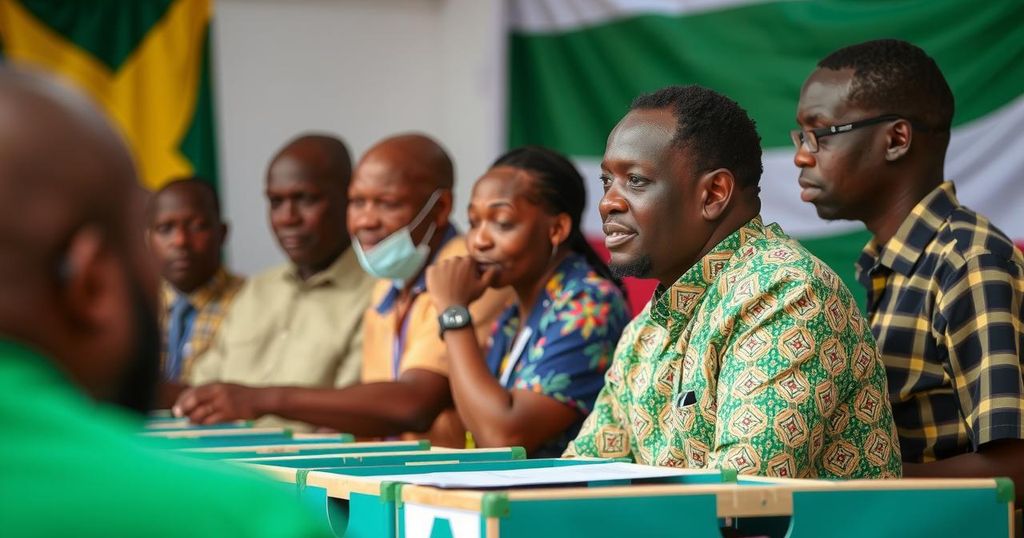Gabonese Voters Overwhelmingly Support New Constitution in Referendum

Gabon has reported that a new constitution has been predominantly supported by voters in a recent referendum, with 91.8 percent approval. While turnout was lower than expected, the changes proposed aim to limit presidential terms and alter eligibility criteria. The vote was characterized by extensive government campaigning, and significant opposition remains regarding the implications of these reforms on democracy.
Gabon’s military authorities have announced that a new constitution has received overwhelming approval in a nationwide referendum held recently. Provisional results indicate that approximately 91.8 percent of voters supported the constitutional changes, despite a lower-than-anticipated voter turnout of 53.54 percent. The new constitution limits presidential terms to a maximum of two seven-year periods, abolishes the position of Prime Minister, and prohibits dynastic succession.
The military junta, which assumed power following a coup in August of the previous year, spearheaded an extensive campaign intended to encourage voter participation. The transitional president, Brice Oligui Nguema, characterized this referendum as a major progressive step for the nation. Notably, the new constitution stipulates that presidential candidates must be exclusively Gabonese, disqualifying former president Ali Bongo Ondimba, who was married to a French national.
While there were no significant issues reported at polling stations across the nation, critics of the new draft have expressed apprehension, claiming it serves to entrench a dictatorial system rather than promoting genuine democratic governance. Many citizens exhibited support for the junta despite criticisms, with statements reflecting belief in the transitional leadership’s promises. Observers note that the upcoming presidential election in August 2025 remains a focal point for Gabon’s political future.
In addition to the constitutional reforms, public sentiment suggests a desire for increased government responsibility as issues like unemployment and rising costs continue to affect the citizenry. As the final confirmation of the results is awaited, many individuals have expressed a desire for transparent governance moving forward.
The recent referendum in Gabon is a response to political unrest precipitated by the military coup that ousted the long-standing president, Ali Bongo Ondimba. The proposed constitutional changes are significant as they redefine governance structures and eligibility for presidential candidacy. Historically, Gabon has experienced prolonged authoritarian rule, and the current leadership appears to be leveraging public support through claims of reform. The context of the new constitution suggests a need for improved governance amid economic concerns, particularly unemployment and living costs, which have emerged as prominent issues for citizens.
The approval of Gabon’s new constitution marks a pivotal moment in the nation’s political landscape, reflecting strong support for the military regime’s vision for governance. With significant changes proposed, including term limits for the presidency and requirements for candidates, the referendum demonstrates the junta’s intentions to control the political narrative in the lead-up to the 2025 presidential elections. However, skepticism remains regarding genuine democratic progress, as critics highlight potential risks of entrenching authoritarian rule. Overall, the outcome of the referendum could shape Gabon’s socio-political dynamics in the coming years.
Original Source: www.tiogapublishing.com






